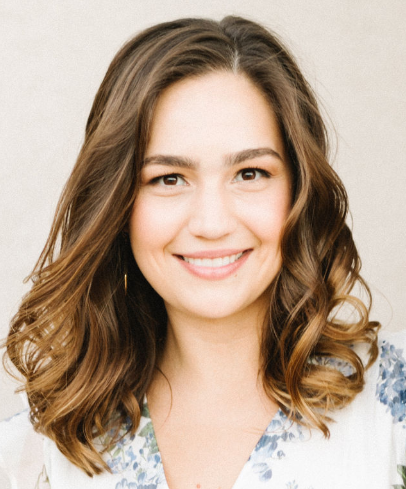One of the most rewarding pieces of the Graduate Student and Early Career Professional Workshop is learning about the participants’ work and the goals they hope to achieve. We enjoy hearing about what past trainees go on to do years after the experience. This workshop attracts students and early career professionals from around the world who work with populations with diverse needs, presenting problems, and experiences. Our trainees are able to adapt the models and ideas upon their return to work, and we’re always thrilled to hear about how the workshop helped facilitate application of CBT principles. The following account comes from Caroline Shanholtz, a Beck Institute Student Scholarship Competition Winner, from Los Angeles, CA.

Where were you in your career when you attended the Graduate Student and Early Career Professional Workshop in 2019?
I was a graduate student earning my Ph.D. in clinical psychology from the University of Arizona.
Do you feel the workshop helped your career? If so, in what way(s)?
Absolutely! I was able to speak more confidently about CBT and conceptualize clients on internship and postdoc interviews! I learned so much and still use many of the resources provided in the workshop.
Did participating in the workshop and learning the Cognitive Model inspire your next steps?
Absolutely! I primarily deliver Trauma Focused Cognitive Behavioral Therapy (TF-CBT) to youth who have experienced trauma and use the cognitive model to help them identify and modify post-trauma cognitions.
Do you find yourself utilizing techniques covered in the workshop in your practice today?
Yes! I supervise graduate students delivering TF-CBT and I also deliver TF-CBT to youth, and I often use the safety plan that was taught and the Socratic questions that we practiced.
Do you continue to practice and study CBT? Would you like to share any interesting projects you are working on?
Yes! I am a postdoctoral scholar at UCLA, and I conduct intervention research on trauma interventions that use a cognitive behavioral framework. Currently, I am looking to develop a PTSD prevention program using cognitive behavioral principles for justice involved youth.
What inspired you to start your work on a PTSD prevention program?
I do a lot of work with youth who have experienced many potentially traumatic events. I was always fascinated by how resilient youth are and how many who experience potentially traumatic events do not develop PTSD. I wanted to figure out a way to strengthen youth resilience to even further reduce the amount of youth who develop PTSD.
Register for our Graduate Student and Early Career Professional Workshop.